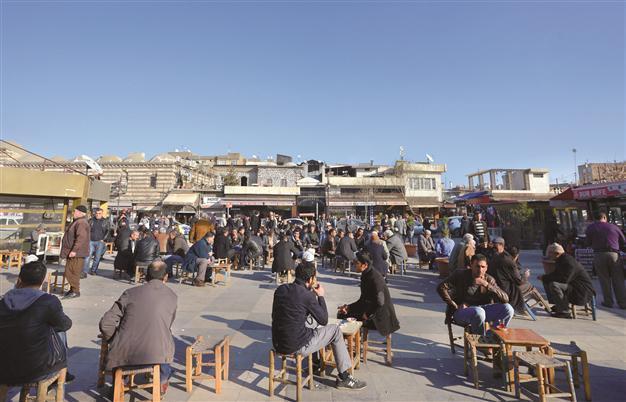BDP offers founding ‘regional assemblies’

A general from the southeastern province of Diyarbakır, one of the strongholds of the Peace and Democracy Party (BDP) is seen in this file photo. DAILY NEWS photo, Emrah GÜREL
The Peace and Democracy Party (BDP), known to have attributed significant importance to the strengthening of local administrations as a means of resolving the Kurdish issue, has proposed the establishment of “autonomous regional assemblies.”The BDP’s proposal came Feb. 7 at a meeting of a sub-commission of Parliament’s Constitution Reconciliation Commission, during which the article covering local administrations was debated.
According to the BDP’s proposal, there will be both central and local administrations in the country with 20 separate autonomous regional assemblies taking office through elections. Provided they remain within the framework of the Constitution, they will be able to impose taxes and adopting laws. While the central administration will be responsible for “judiciary, national defense, national security, foreign relations, finance, treasury, foreign trade, custom services and arrangements as well as duties concerning markets,” the regional assemblies will be autonomous on services regarding education, health and public works. The proposal aims at having regional governors who will be elected in a two-round system.
“This model is similar to the U.S. State system. However, we preferred to use the adjective ‘regional,’” the BDP’s Altan Tan told the Hürriyet Daily News, noting there are a lot of examples of autonomous governance in the world.
The BDP has long sought the devolution of many responsibilities, including financial and administrative ones. It is also insistent that Turkey lift its reservations on the Council of Europe’s Charter of Local Self-Government.
Although offering different definitions, all three other parties — the ruling Justice and Development Party (AKP), the main opposition Republican People’s Party (CHP) and the Nationalist Movement Party (MHP) — introduced substantially similar proposals that resemble the current system. At the same time, these three parties all objected to the BDP’s proposal for “autonomous regional assemblies.”
Moving toward decentralization
For local administrations the AKP offered a definition that said, “public corporation decision bodies that take office through elections and which will meet the needs of people of the locality.” At the same time, the CHP and the MHP offered a definition stating, “public corporation decision bodies that take office through elections in order to meet the common needs of the peoples of [any] province, municipality and village.”
According to the proposals by the CHP and MHP, local administrations will offer services in line with the principle of decentralization and within the framework of a basis set by the law.
The AKP’s proposal also refers to the principle of decentralization.
As there was no full agreement reached by the end of the debate, the article covering local administrations was eventually written with red lines, which is to say with reservations from all four parties. The four parties, meanwhile, agreed that local elections should be held every five years.
















